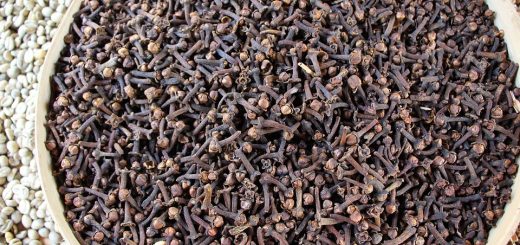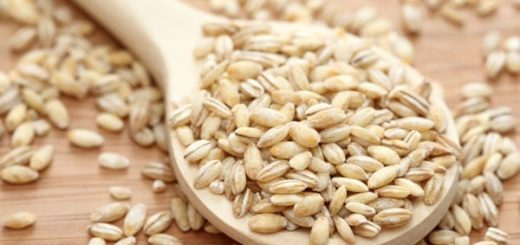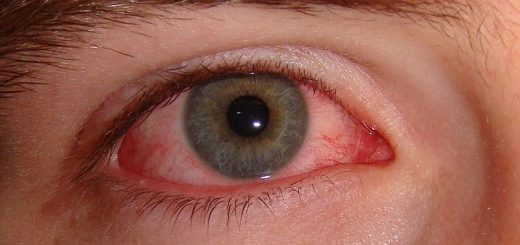41 Ashwagandha Health Benefits
Ashwagandha is an evergreen shrub. It grows most commonly in India but can also be found in the Middle East and parts of Africa. Its roots and fruit are well known for their various health benefits and have been used for generations to treat a number of ailments. Ashwagandha is also sometimes called Indian ginseng. Keep reading to learn more about Ashwagandha health benefits.
The term Ashwagandha comes from the term ashwa, which means horse and is thought to be a reference to the herb’s smell. Although it might not smell great, it is highly beneficial for your health in a number of different ways. Here are some of the health benefits of Ashwagandha.
Health Benefits of Ashwagandha
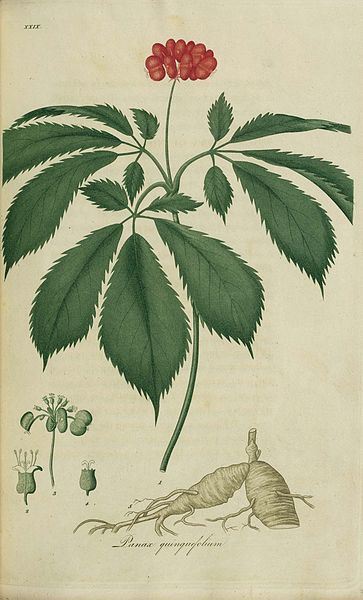
Drawing of Ashwagandha, including the fruit, blossoms, and roots
-
Diabetes Management
Several studies have shown that Ashwagandha can help to lower your blood sugar. This could mean that a regular intake of Ashwagandha could help people with diabetes manage their condition. One study found that taking an Ashwagandha supplement once a day for thirty days could lower fasting blood sugar levels as effectively as other oral diabetes medications.
-
It Has Anti-Cancer Properties
Ashwagandha can help induce the programmed death of cancer cells. It can also help to prevent the growth of new cancer cells. This is because the herb is thought to generate reactive oxygen species which don’t harm normal, healthy cells but are toxic to cancer cells. This then causes them to break down and die.
-
Reduces Cortisol Levels
Cortisol is often referred to as the “stress hormone”. It’s produced by your adrenal glands in response to stressful triggers. In some cases, your cortisol level can become elevated over a long period of time which can increase blood sugar levels and increase fat storage in your abdomen.
A number of studies have shown that Ashwagandha can help lower your cortisol levels, helping you feel less stressed and reducing the amount of fat stored in your abdomen by helping to keep your blood sugar at a healthy level.
-
Reduce Stress and Anxiety
The most well-known health benefit of Ashwagandha is its ability to reduce stress. Research has found that it blocks the stress pathways in the brain and regulates chemical signaling in the brain to prevent your stress and anxiety from becoming overwhelming.

St. John’s Wort flower can also be used to treat anxiety and stress
-
Reduce Symptoms of Depression
Although not as well evidenced as its effects on stress and anxiety, Ashwagandha may also help to lift depression. Studies found that people who took an Ashwagandha supplement once a day experienced a 79% decrease in severe depression symptoms compared to a 10% increase in people who took a placebo. However, not all the people who took part in this study had a history of depression, making it difficult to determine the relevance of the study.
-
Boost Testosterone and Increase Fertility in Men
Ashwagandha supplements are thought to have a potent effect on testosterone levels and male fertility. One study involving 75 infertile men found that their sperm count increased following a period of taking daily Ashwagandha supplements. The same study also found that these men experienced an increase in their testosterone levels and an increased level of antioxidants in their blood.
-
Increase Muscle Mass and Strength
Ashwagandha can help to improve body composition and increase strength. Studies have suggested that men who take a daily Ashwagandha supplement over a thirty-day period gained muscle strength and increased the size of their muscles more effectively. It has also been known to more than double the reduction in body fat percentages.

Of course, exercise will still be needed to see improvement in muscle growth
-
Reduced Inflammation
Several studies have shown that Ashwagandha helps decrease inflammation within the body. It has specifically been found to help reduce inflammation around the heart which could otherwise increase your risk of heart disease. It works by increasing the activity of immune cells that fight infections to help you stay healthy.
-
Lower Cholesterol and Triglycerides
Not only does Indian ginseng have anti-inflammatory effects, but it can also help protect your heart by reducing the level of cholesterol and triglycerides in your body. A number of studies have backed up these effects. Although the impact is small, it does definitely seem to have an effect on the level of fat inside your body. A sixty-day study found that adults taking a high dosage of Ashwagandha supplement experienced a seventeen percent decrease in bad cholesterol and an eleven percent decrease in the level of triglycerides in their bodies.
-
Improved Brain Function
Ashwagandha supplements can help to reduce issues with memory and brain function as a result of injury or disease. This is a result of the antioxidant properties of the herb which protects your brain cells from free-radical damage. Ashwagandha has been used to treat memory problems for centuries, although there are few studies which prove his effectiveness.
-
Relieves Arthritis Pain
Ashwagandha is often considered a great pain reliever, particularly for the pain caused by arthritis. This is largely because of the herb’s anti-inflammatory qualities which reduce the inflammation around your joints and therefore prevents much of the pain arthritis can cause.

Chinese skullcap flowers can also be used to treat arthritis
-
Promotes Heart Health
Ashwagandha provides a number of health benefits which help to keep your heart healthy. It can help lower your blood pressure, reduce cholesterol, and treat chest pains. This takes much of the pressure off your heart and improves the strength of the muscle.
-
Protection for Alzheimer’s
According to the African Journal of Traditional, Complementary and Alternative Medicine, there are a number of studies which have examined Ashwagandha’s ability to slow or prevent the loss of memory in people suffering from Alzheimer’s.
When a person suffers from Alzheimer’s, parts of their brain become damages leading to a loss of memory and brain function. As a result, taking a daily supplement of Ashwagandha could help to slow down the progression of the disease and potentially lower your risk of developing Alzheimer’s in the first place.
-
Treating Attention Deficit-Hyperactivity Disorder (ADHD)
There are some clinical studies that have shown Ashwagandha ability to treat attention and impulse control in young children. As such, it may be useful when treating ADHD and other attention deficit conditions.

Children with ADHD are likely to have trouble focusing and they will be hyperactive
-
Bipolar Disorder
Taking an Ashwagandha extract for eight weeks is also thought to help relieve the symptoms of people suffering from bipolar disorder. It does this by improving brain functions. While this won’t entirely cure bipolar disorder (as there currently is no cure) it can help to treat the symptoms.
-
Treating Cerebellar Ataxia
Early research suggests that Ashwagandha can be used in combination with other remedies to improve the balance of people suffering from cerebellar ataxia. The research is sparse and still in early stages so it’s not yet clear how or why this is effective.
-
Reduces Fatigue in People Treated for Cancer
Many people experience fatigue when undergoing chemotherapy to treat cancer. This can make it difficult to carry on with everyday tasks. Early research has indicated that taking an Ashwagandha extract each day during your chemotherapy treatment could help to reduce your feelings of fatigue.
-
Improves Weight Management
A great health benefit of Ashwagandha root extract is that it can be used to control and maintain a healthy body weight. In fact, taking 600mg of Ashwagandha each day could help to control food cravings and reactive eating.

Using Ashwagandha will make you feel fuller so you will be less likely to overeat
-
Anti-Bacterial
Ashwagandha has been shown to have effects as an antibacterial agent. As such it can help tackle a number of bacterial infections, including tuberculosis.
-
Antiviral
Taking Ashwagandha tablets has indicated an antiviral effect of the herb. One study found that 29 people taking an herbal remedy containing Ashwagandha experienced fewer symptoms and a quicker recovery from viral hepatitis.
-
Anti-Fungal
Another health benefit of Ashwagandha is that it has been shown to inhibit fungal growth. This is why washing in Ashwagandha water is often used to treat a number of fungal infections.
-
Anti-Parasitic
Animal studies have shown that Ashwagandha has an anti-parasitic effect. This would imply that drinking liquids infused with the herb could be a good way to treat parasitic infections.
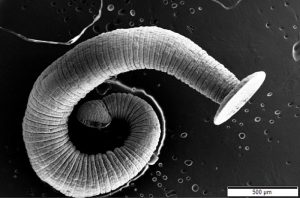
Tapeworms are one parasite that can be killed with the use of Ashwagandha
-
Relieves Menopausal Symptoms
Ashwagandha is also effective in the management of menopausal symptoms. This is because it helps to stimulate your hormonal glands and regulates the secretion of hormones during menopause. As such it can help to reduce the impact of mood swings, hot flashes, and irritability which are often symptoms of the menopause.
-
Improves Sleep
Some studies have shown that taking an Ashwagandha supplement each day could help tackle sleep issues. This is likely to be thanks to its calming effects which make it easier for you to fall asleep.
-
Helps with Gut Issues
An Ayurvedic medication containing Ashwagandha has been used to help treat a number of gut problems including constipation, stomach cramps, and vomiting. Other studies have also shown that the herb can help to reduce inflammation caused by bowel disease and restore the health of your intestinal lining.
-
Promotes Bone Health
In a number of studies, Ashwagandha has been shown to inhibit resorptions and stimulate new bone formation, which helps to reduce bone loss. It is also known to help improve bone calcification and calcium retention, helping bones to grow stronger.
-
Protect the Kidneys
Ashwagandha has been shown to have a protective effect on the kidneys. It helps to protect them against the damaging effects of various toxins and can also help reduce the damage caused by dehydration.
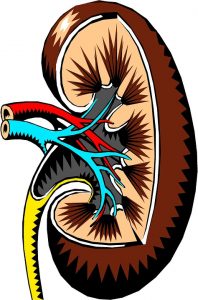
Good kidney health can help to prevent kidney disease
-
Protect the Liver
One of the great health benefits of Ashwagandha is its ability to protect your liver from a number of toxins and different types of damage. It does this by increasing the bile content of your liver and also prevents damage caused by ionized irradiations and heavy metals. This all helps your liver to continue to function properly.
-
Help with Respiratory Problems
The carbohydrates that are extracted from Ashwagandha have been shown to suppress coughing. They also help to protect your lungs against the damage that can be caused by lipopolysaccharides. This means your lungs can continue to function correctly, making breathing easier and less painful. It’s anti-inflammatory properties also mean it can help reduce the swelling behind many respiratory conditions, such as asthma. Its antibacterial qualities mean that it’s also effective in fighting lung infections like tuberculosis.
-
Control Seizures
Although Ashwagandha has often been used in traditional medicines to control seizures, its effectiveness is yet to be proved in human studies. Although it has been shown to be successful in a number of animal studies.
-
Reduce Uterine Fibroids
Long-term treatment with Ashwagandha supplements has been shown to help control uterine fibroids (also called non-cancerous growths). The herb helps to inhibit the growth of these non-cancerous tumors, thus controlling and managing their side.

Milk thistle is another herb that can help to treat fibroids
-
Treat Polycystic Ovary Syndrome (PCOS)
Ashwagandha can be combined with Tribulus Terrestris to make an effective treatment for PCOS. The mixture helps to restore hormone imbalances and so limits the number of the symptoms and causes of PCOS.
-
May Be Used as Antivenom
In India, Ashwagandha is often used as a treatment for snake bites. One of the compounds contained within Ashwagandha is known to inhibit cobra and viper venom, making it an ideal home remedy for bites from these snakes. When combined with other medicines, it can also be used as an antivenom for scorpion stings.
-
Reduce Morphine Dependence
There is some evidence to suggest that Ashwagandha may reduce dependence on morphine. Studies have shown that it reduced the severity of withdrawal symptoms. This is thought to be a result of the herb’s effect on your opioid receptors.

This may help to curb other addictions as well
-
Supports Energy Levels
Because it has adaptogenic activities, Ashwagandha can support normal energy metabolism, testosterone production, and thyroid health. This makes it especially useful for fighting fatigue and tiredness associated with stress. By increasing the volume of a chemical called thyroxine in the body, Ashwagandha enhances the function of your thyroid and so boosts your metabolism and energy levels whilst also improving your mood and immune system.
-
Treats Erectile Dysfunction
If you find you’re experiencing erectile dysfunction, you may find taking a daily supplement of Ashwagandha helps to improve your libido and sexual health. In fact, it’s often recommended as a treatment for erectile dysfunction, but should only be used for this aim under the instruction of a doctor.
-
Stimulates the Thyroid Gland
In instances where people suffer from hypothyroidism, Ashwagandha can be used to stimulate the thyroid gland and tackle the condition. A study published in the Journal of Pharmacy and Pharmacology in 2011 found that the extract from Ashwagandha root increases the secretion of thyroid hormones.
-
Increases Blood Production
According to recent studies, Ashwagandha helps to increase the process of blood production. The herb has been shown to increase red and white blood cell counts significantly which could make it a great home remedy for anemia.

Eating foods high in iron, like potatoes and dates (shown above) can also help to treat anemia
-
Reduces Ocular Diseases
Because of its antioxidant and cytoprotective properties, Ashwagandha makes a great home remedy for tackling cataracts. Take a daily supplement of Ashwagandha and you should find your cataracts improve, whilst also lowering your risk of developing cataracts in the future.
-
Relieves Adrenal Fatigue
Research suggests that Ashwagandha could be used to support your adrenal function, helping to tackle adrenal fatigue. Your adrenal glands are responsible for the release of various hormones the most recognizable ones being cortisol and adrenaline. These two hormones are generally released due to stress.
If you’re experiencing overwhelming levels of physical or mental stress, your adrenal glands become fatigued which could disrupt the levels of other hormones in the body. Taking an Ashwagandha supplement each day could help prevent and relieve adrenal fatigue.
-
Increases Stamina and Endurance
Studies have shown that another health benefit of Ashwagandha is its ability to boost endurance during physical activity. This is because it can help to sharpen brain function and reduces the recognition of bodily pain. It also has a calming effect of the brain whilst at the same time energizing it and lowering the level of stress hormones in the body. This allows for better concentration, motivation, and stamina. One study, conducted in 2015 found that healthy adults who consumed Ashwagandha extracts each day had improved cardiorespiratory endurance.

Try drinking Indian ginseng tea instead of sports drinks to see if it helps you
Will you try ashwagandha? Comment below!
References
https://www.healthline.com/nutrition/12-proven-ashwagandha-benefits#section12
https://www.mygenefood.com/ashwagandha-health-benefits/
https://www.selfhacked.com/blog/59-proven-scientific-benefits-ashwagandha-references/
https://www.webmd.com/vitamins/ai/ingredientmono-953/ashwagandha
https://www.healthline.com/health/food-nutrition/ashwagandha-health-benefits#side-effects
Indian Ginseng picture source: https://www.flickr.com/photos/uwdigicollec/3543549600/.
Tapeworm picture source: https://commons.wikimedia.org/wiki/File:Tapeworm_SEM2.jpg.

